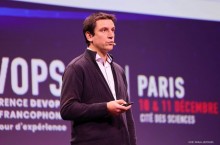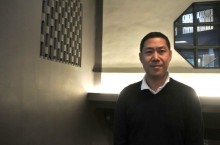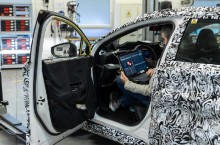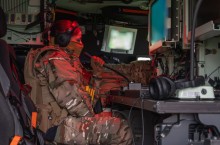CIO en VO : quand le patron de VMWare considère que les "vieux" OS font partie du passé...
Mardi dernier, le PDG de VMWare, Paul Maritz, a profité d'un keynote pour lancer une diatribe anti-"vieux" systèmes d'exploitation et mettre en avant une vision "virtualisée" de ces outils logiciels basiques... On se demande bien pourquoi...
PublicitéVMware's CEO made his pitch on Tuesday for a new type of operating system for the data center, and in the process assigned the "traditional OS" to the dustbin of history. Speaking at the start of the VMworld conference in Las Vegas, CEO and President Paul Maritz described VMware's plans to offer a "virtual data center OS" for managing server applications more flexibly and efficiently. The VDC OS is an attempt to extend the use of virtualization beyond the server, where it is widely used today, and apply the same principles to all the other hardware in a data center, including network switches and storage. By creating this virtual environment, Maritz said, IT departments will be able to move application workloads to new hardware easily when extra capacity is needed, and set up new environments for running applications more quickly. It will create an "internal cloud computing environment" for the data center. VMware announced the VDC OS on Monday, and Maritz's job Tuesday was to sell it to a cavernous hall packed with VMware customers. Most of the products that will make up the VDC OS don't exist today; VMware says it will roll out the new software throughout 2009, including products such as vNetworks and vStorage, for managing virtual pools of switches and storage equipment. Maritz barely mentioned Microsoft in his hour-long speech, but his implication was that Microsoft, which is emerging as VMware's biggest competitive threat, will have no advantage from bundling its own Hyper-V virtualization software with its Windows OS. "The traditional operating system has all but disappeared," Maritz said, making his first public speech since taking charge at VMware in July. It will be "deconstructed" and "reassembled" to make it more useful for data center environments. Asked at a question-and-answer session later if VMware is building its own OS, Maritz replied, "Yes and no, it depends what you mean by an operating system." "It is an operating system in the following sense," he said. "It abstracts away application loads from the underlying infrastructure, like traditional operating systems do, but the application loads it handles are different. This is drawing a line at a different point in the hierarchy." "It has many parallels with an OS, in the sense that it has APIs and services," he said, "but it is not a traditional OS. What we expect is that people will increasingly use the services of the virtual data center OS to construct new types of application loads that will fulfill the capabilities that you see in traditional operating systems." The company "agonized long and hard" about whether to describe the VDC OS as an operating system, and also considered "virtual infrastructure" and "meta operating system." "The reason we chose virtual data center OS is because in our interactions with customers we'd try to outline what we were doing, and they would say 'You are building an OS.'" "We could grow the hypervisor into a traditional OS, that's still an option for us down the road," he added. "But that's not what we've currently decided to do." Maritz acknowledged that VMware is embarking on a "big endeavor" and said it will depend on working closely with partners. He was asked what will be the biggest challenges for VMware in the year ahead. "As with all things there's the small matter of execution," he said. "We'll have to mature as an organization in several ways to do that." They include learning to manage "multiple internal technical endeavors" and meeting deadlines for delivering the new products, he said. The company has gone from being "the only game in town" in virtualization to facing new competitors such as Microsoft. He joked that Microsoft, where Maritz once worked, lacks critical virtualization features that "won't ship until Windows 3000, or whenever." "But clearly you can't count Microsoft out," he said. James Niccolai - Copyright (c) 2008 IDG News Service. All rights reserved. IDG News Service is a trademark of International Data Group, Inc
Article rédigé par
IDG News Service
Partager cet article
Articles à la une

Panne logicielle sur les Airbus A320 : les rayonnements solaires nous ont-ils aveuglés ?









Commentaire
INFORMATION
Vous devez être connecté à votre compte CIO pour poster un commentaire.
Cliquez ici pour vous connecter
Pas encore inscrit ? s'inscrire